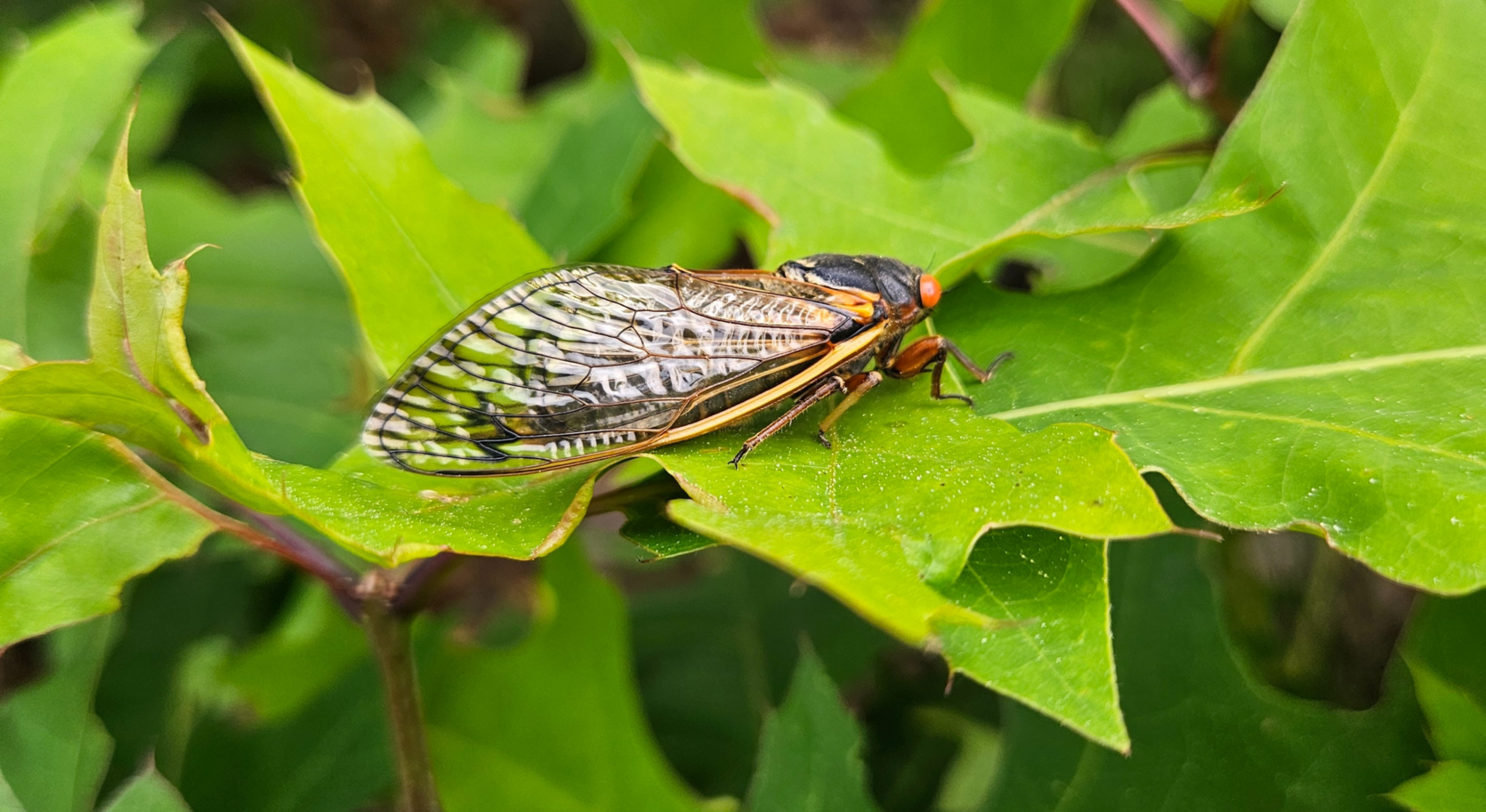- Division of Fisheries and Wildlife
Media Contact
Media Contact, MassWildlife

Video: Cicada Chorus on the Cape
Skip this video Cicada Chorus on the Cape.If you’re headed to the Cape to enjoy the warm weather, you may be greeted by the distinct hum of cicadas. Massachusetts is home to annual cicadas that emerge each summer, but this year, Cape Cod is experiencing the rare emergence of Brood XIV periodical cicadas, which surface only once every 17 years.
Life cycle
After mating, female cicadas cut small slits into tree branches to lay their eggs. About 6 to 7 weeks later, the eggs hatch and the tiny nymphs drop to the ground, where they quickly tunnel into the soil. Underground, they feed on plant roots and slowly develop over many years.
The Brood XIV cicadas appearing this summer first hatched in 2008. After 17 years underground as immature nymphs, they’ve emerged as mature adults. Once above ground, they molt (shed their old exoskeleton) for the last time, wait for their wings and bodies to harden, and then take flight in search of a mate. Adult cicadas will be emerging through July, and each individual only lives up to a couple of weeks. The next appearance of Brood XIV cicadas won’t be until 2042.
Sounds
Before you spot a cicada, you’ll likely hear them. Males produce their distinctive buzzing sound using structures on their abdomens called tymbals. They often synchronize their calls into a loud, rhythmic chorus to attract females to their location. Females then select their mate from among the performers.
Their constant buzzing can be very loud, and cicadas may end up in places people don’t want them, such as yards, gardens, houses, or vehicles. Rest assured that cicadas don’t bite or sting and pose no harm to people, pets, or plants. They will disperse from a specific location usually within a few days.
Feast for wildlife
Cicadas are a high-protein treat for many wild animals, providing a seasonal bounty during emergence years. Birds, small mammals, reptiles, and amphibians all take advantage of this unexpected and abundant food source. Even fish benefit when cicadas fall into ponds and streams.
Their mass emergence is a survival strategy known as predator satiation. By appearing in overwhelming numbers — predators can only eat so many — plenty of cicadas survivive to reproduce the next generation.
Whether you find them fascinating or just noisy neighbors, Brood XIV cicadas are a rare spectacle worth appreciating while it lasts.
